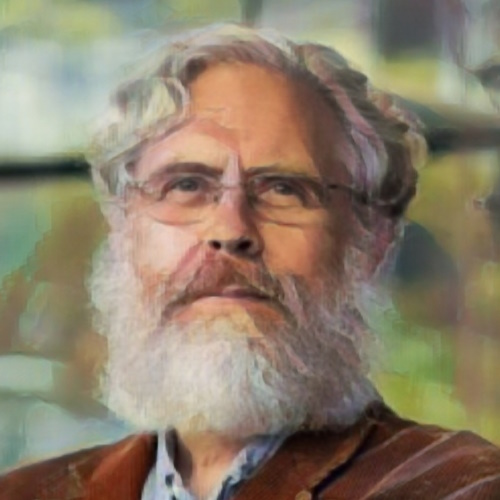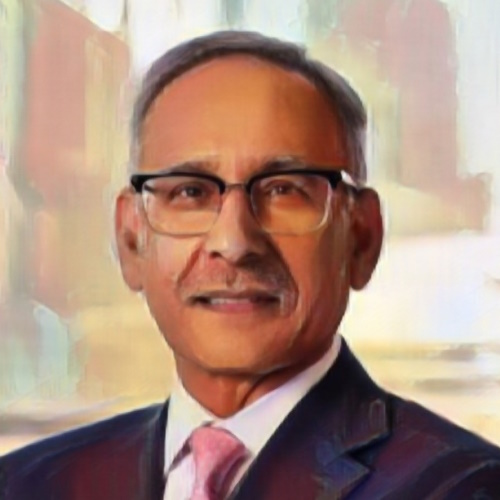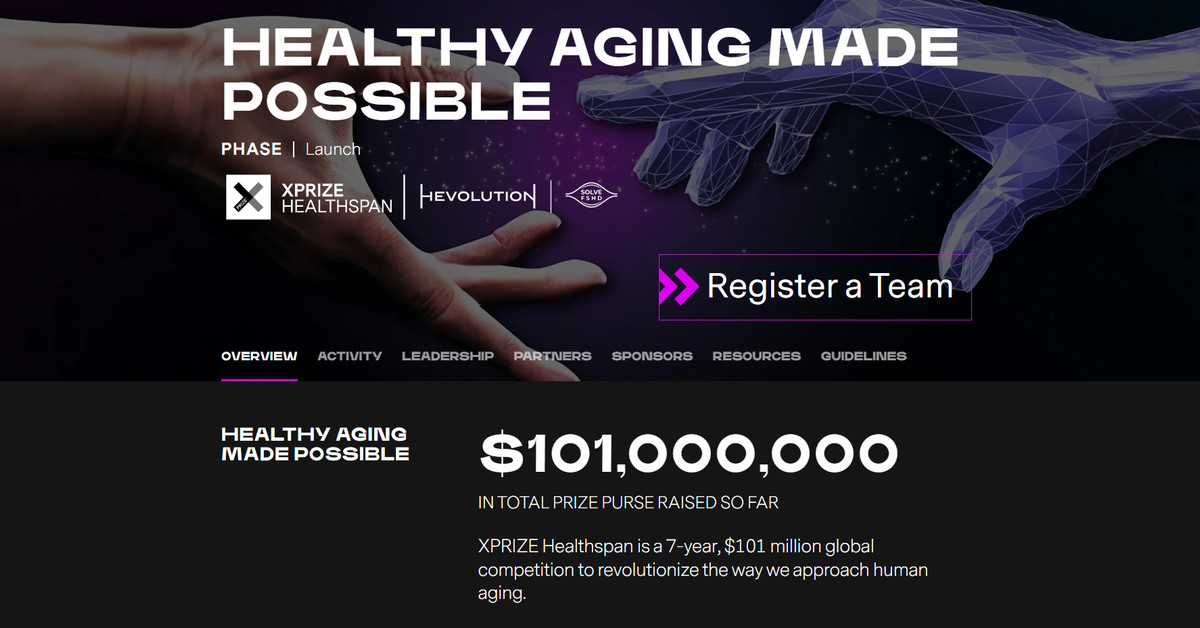Today, XPRIZE Foundation launched its biggest competition yet – the XPRIZE Healthspan $101 million challenge. Announced at the Global Healthspan Summit, this latest moonshot could have the biggest impact on humankind, ever.
Peter H. Diamandis, founder of the XPRIZE, explained that this competition has been seven years in the making, since a conversion with Sergey Young. That time has been used raising funding, developing goals, and, perhaps, waiting for the moment when extending healthspan is a realistic prospect within a reasonable timescale.
To win the XPRIZE, a team (from anywhere in the world) must demonstrate a therapeutic treatment (which takes take 1 year or less) that restores muscle, cognitive, and immune function by a minimum of 10 years in persons aged 65-80 years. That is basically doubling remaining healthspan (if not lifespan) providing many more healthy years to everyone alive.
In addition, another ten million dollars bonus purse is offered if the treatment restores muscle function in individuals with stable Facioscapulohumeral Muscular Dystrophy (FSHD). This prize has been donated by Chip Wilson, CEO & Founder of SOLVE, who has that diseases and is also co-title sponsor of the main prize. The other co-title sponsor is the Hevolution Foundation, represented by its CEO, Mehmood Khan, which is already funding up to one billion dollars a year of longevity research.
Jamie Justice, recently appointed as Executive Director of XPRIZE Healthspan, said that the exact details are still being worked on, but there will be additional criteria such as safety, being equitably accessible (e.g. covered by Medicare in the US) and impact on ageing biomarkers.
This is a great XPRIZE idea, and as well as encouraging research and development in the longevity industry (Diamandis estimates that a competition generally produces ten times the research as given away as a prize) it will also help raise awareness of the very real prospect of significantly longer, and healthier, lives in the very near future. With the success criteria covering 3 major systems of the body it means the treatment really must be tackling the underlying causes of ageing rather than a single disease.
Can this really be delivered in the next 7 years? George Church thinks so and gave plenty of examples of how ageing research is increasing exponentially resulting in a massively improved understanding of genes and proteins amongst areas of the biology of ageing. We certainly hope so!
More information at:
https://www.xprize.org/prizes/healthspan












